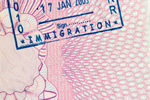Thailand moves the goalposts for expat professionals and retirees

Thailand moves the goalposts for expat professionals and retirees
Many expats who’ve been living, working or retiring in Thailand are now wondering whether it’s time to move on, as so much has changed during the past few years. Meanwhile, nearby Southeast Asian states which seemed unwelcoming at best in the past have changed their stances on expat immigration, making it far easier for would-be arrivals. The main reasons for Thailand’s fall in popularity are the frequent changes in laws governing the state‘s so-called retirement visas.
For those arriving to take on a reassignment in Thailand, work visas and work permits are taken care of by their employers and are relatively trouble free as a result, but expats on retirement visas are now having to either use a visa agent or keep up with frequent regulation changes themselves. A good example is last year’s announcement that all foreigners on O-A visas must now have private medical insurance with coverage set at 400,000 baht for in-patient treatment. Should health insurance not be obtained, the visa will not be renewed and the expat must leave.
The new requirement might not sound too onerous until would-be expat retirees examine the annual fees quoted by the compulsory Thai companies providing the insurance. Firstly, annual payments for the insurance itself can be more than the amount of coverage provided in the case of older expats, and those over 75 are uninsurable except at a huge, mostly unaffordable cost. The 400,000 baht coverage itself doesn’t come anywhere near the average costs of emergency or chronic hospital care at Thailand’s private hospitals.
Even elderly expats with already existing high quality Western health insurance plans aren’t exempted from this new requirement and must purchase the insurance as a condition of visa renewal. Previously, the mostly locked-in 800,000 baht deposit in a Thai bank account was intended to cover medical costs, but this is also still required to be maintained in the bank. For those hoping to avoid the extortionate charges in Thailand’s private hospitals by using public hospitals, these have now been instructed to charge foreigners twice the rates for Thai patients.
However well expats can drive, the experience of Thai driving habits is at least a surprise and, for the unfortunate, something of a shock! The country has the second highest accident rates on the planet, especially for those using motorbikes. Speeding and drunk driving are the usual culprits when an accident occurs, and many expats are now taking on accident insurance as another form of financial protection especially as, should an expat be involved in an accident, it’s never the Thai driver’s fault.
Another issue is Thailand’s double pricing for expats of everything from healthcare, restaurant meals, entry to tourist attractions and even museums. This has been controversial for years amongst the expat community, but continues nevertheless. A more recent and worsening issue for those heading for the northern provinces is the dangerous level of air pollution caused by the burning of crops, forest areas and anything else that isn’t considered important. The resultant smog is often worse than that in London some 70 years ago, and can cause serious illness during the winter season.
Last of all is the country’s reputation for bureaucracy, usually twinned with the fact that learning the Thai language seems almost impossible for the average expat, just as learning English is a nightmare for the average Thai. Reams of paperwork are necessary for even the simplest task, whether it’s for visas, starting a business, purchasing or renting a home or buying a car and getting a Thai driving license. Unnecessary complications are par for the course, but new arrivals will take a number of years to cultivate the necessary laid-back attitude in order to avoid stress.
Related Stories:
- Expats find peace in the covid-19 refuge of Dahab town - July 20, 2020
- Expats in Malaysia still banned from overseas travel - July 17, 2020
- HSBC Asia to cut back on internal expat relocations - July 16, 2020
- China hits its expats with 45 per cent tax on overseas earnings - July 15, 2020
Latest News:
- Tips on a trouble-free relocation as an expat overseas - July 20, 2020
- Expats find peace in the covid-19 refuge of Dahab town - July 20, 2020
- Is Kuwaitization the unintended result of the oil price crash? - July 20, 2020
- Expats unhappy abut changes to Korean points-based visa system - July 17, 2020
- Chiang Mai and Bangkok no longer bargain locations for expats - July 17, 2020
- Expats in Malaysia still banned from overseas travel - July 17, 2020
- Vietnam welcomes expats to its safe, affordable lifestyle - July 16, 2020
- Asian tiger economies reach out to expats in Hong Kong - July 16, 2020
- HSBC Asia to cut back on internal expat relocations - July 16, 2020
- Tips on integrating for newly-arrived expats - July 15, 2020


